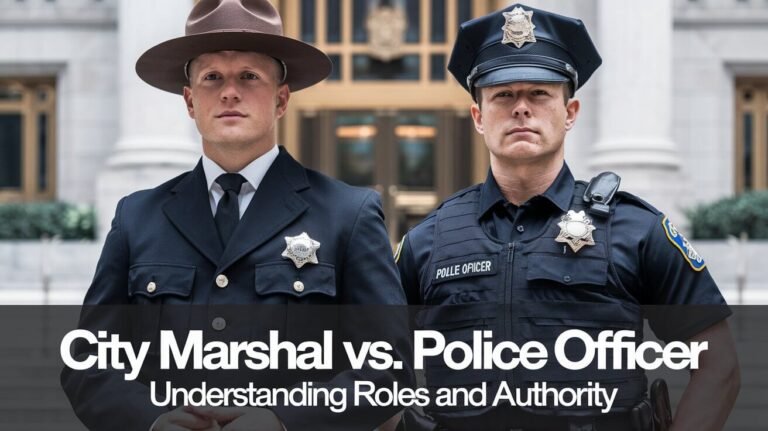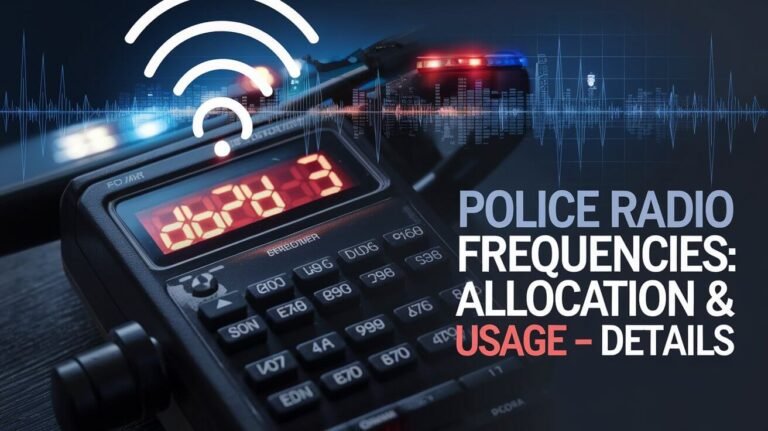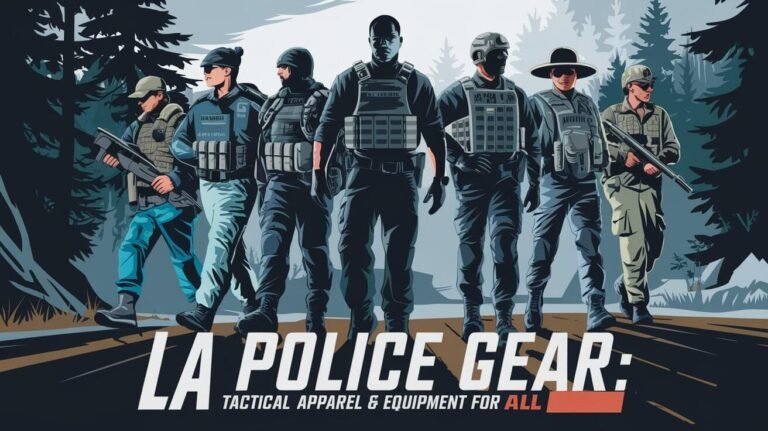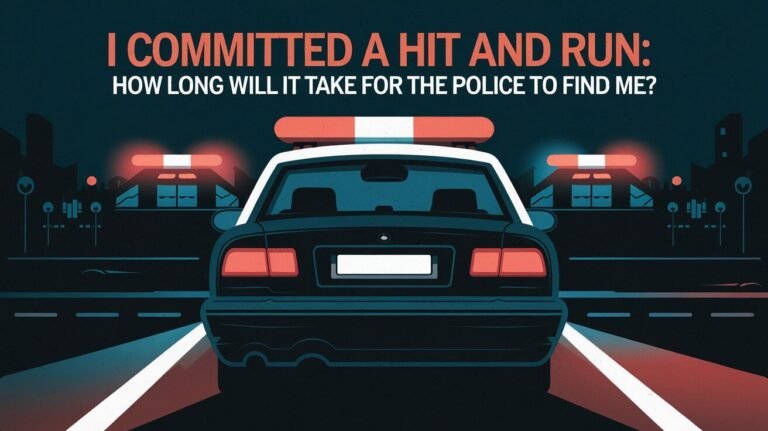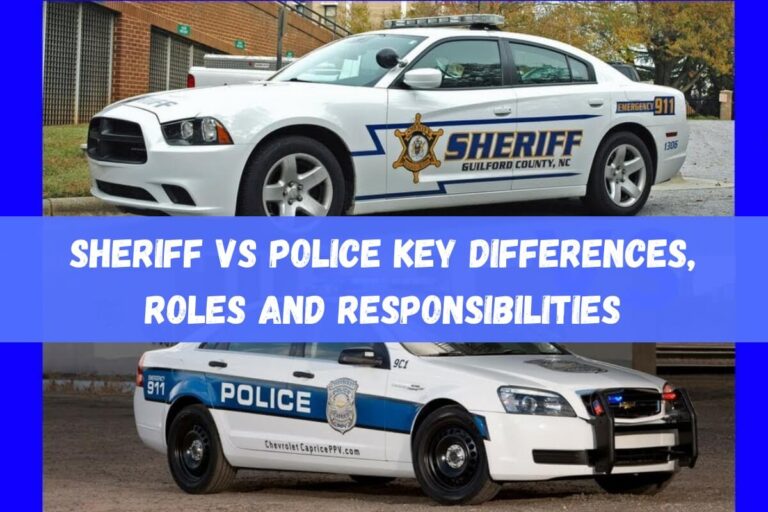Can Police Run K9 On Any Car? Laws & Limitations In 2025
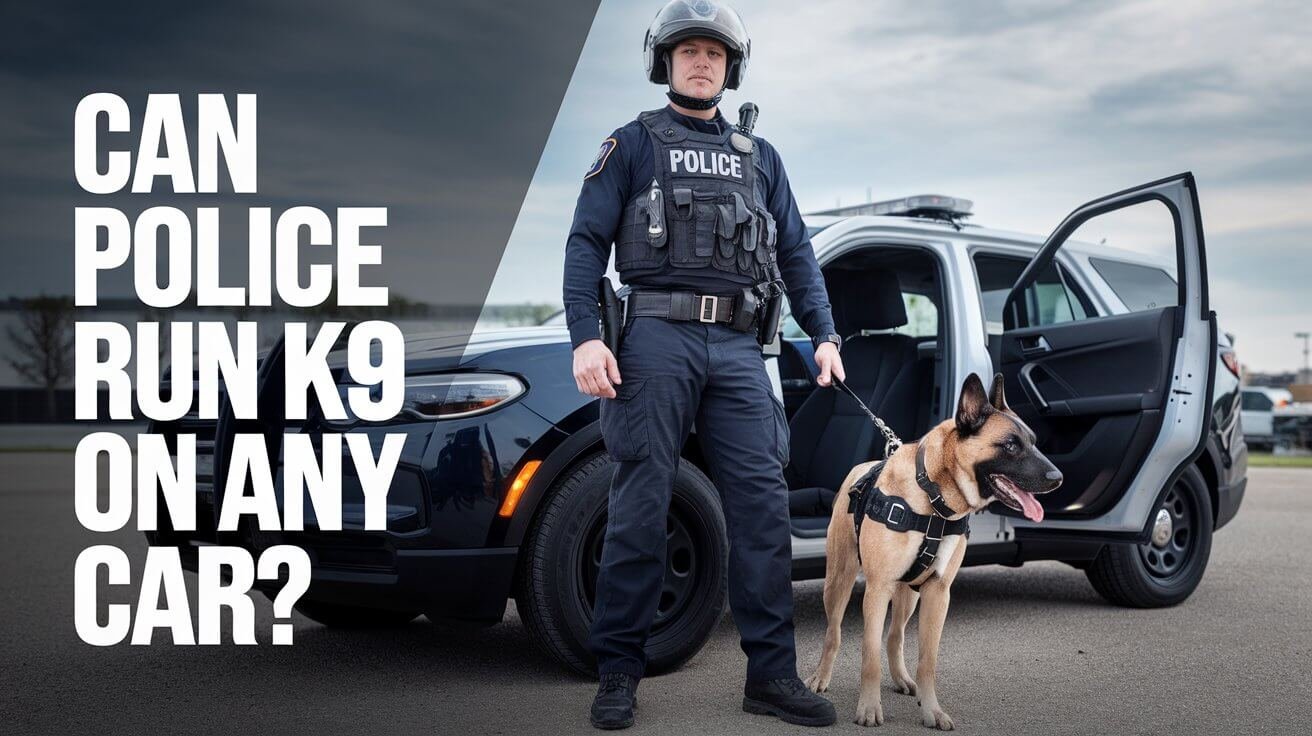
Many people wonder if police can run a K9 search on any car during traffic stops. The answer depends on your rights and the legal facts about K9 searches. In the U.S., police can do K9 searches, but they must follow the Fourth Amendment. This amendment protects you from unreasonable searches and seizures.
A K9 search can help police, but you need to know your limits and rights as a car owner. It’s important to understand your rights and the legal facts about K9 searches.
In cases like Bodiford v. State and State v. Garding, courts have set clear rules for K9 searches during traffic stops. These cases show how important it is to look at all the facts when deciding if a K9 search is okay. If you’re stopped by police, knowing your rights and the legal facts about K9 searches is key to protecting yourself.
Constitutional Rights During Traffic Stops
When a driver is pulled over, they have certain rights that must be respected. The Fourth Amendment protects against unreasonable searches and seizures. Law enforcement needs reasonable suspicion to search or seize property during a stop.
K9 units during stops raise concerns about these rights. The idea of reasonable suspicion is key. Officers need a good reason to believe a crime is happening or that someone has contraband.
Fourth Amendment Protections
The Fourth Amendment guards against unreasonable searches and seizures. During a stop, officers can search a vehicle but need probable cause. K9 searches are considered searches and must respect individual rights.
Reasonable Suspicion Standards
Reasonable suspicion is less than probable cause but is needed for a search. Officers use their observations and experience to decide if there’s reasonable suspicion. But, K9 unit use can be influenced by the handler’s actions and beliefs.
Probable Cause Requirements
Probable cause is a higher standard. It requires officers to have strong evidence of a crime or contraband. During a stop, they need probable cause to search a vehicle. K9 units can provide this, but evidence must be reliable and credible.
Important factors during traffic stops include:
- Reasonable suspicion: Officers must have a legitimate reason to believe a crime is being committed.
- Probable cause: Officers must have substantial evidence that a crime is being committed or that the individual is in possession of contraband.
- Fourth Amendment protections: The Fourth Amendment protects individuals from unreasonable searches and seizures.
- K9 unit searches: The use of K9 units can be considered a search, and it must be conducted in a manner that respects the individual’s constitutional rights.
Legal Boundaries of K9 Vehicle Searches
K9 vehicle searches have strict legal rules. The Fourth Amendment guards against unreasonable searches and seizures. Law enforcement needs probable cause for a search warrant. But, there are exceptions for warrantless searches under certain conditions.
When it comes to K9 searches, there’s a balance. Law enforcement aims to prevent crime while respecting privacy. Drug-sniffing dogs can sometimes be biased or give false alerts. This can lead to legal issues and challenges in court.
It’s important to know the legal limits of K9 searches. This ensures law enforcement acts lawfully and respects individual rights.
Some key points to remember about K9 searches include:
- Probable cause or reasonable suspicion is needed for a search
- Warrantless searches are only allowed in specific cases, like border checks or roadblocks
- People can refuse a search with a drug dog if there’s no probable cause
Knowing the legal limits of K9 searches helps protect individual rights. It’s vital to understand search and seizure rules to avoid legal violations.
Time Limits for K9 Units at Traffic Stops
Time limits are key in traffic stops to ensure fairness and efficiency. K9 units have specific time limits during stops. Supreme Court rulings guide these limits, balancing public safety and driver rights.
Police wait times and driver detention rules also matter. The Supreme Court says stops should last only as long as needed. K9 units must be used quickly and efficiently to avoid delays.
Some key considerations for time limits at traffic stops include:
- Supreme Court rulings on the duration of traffic stops
- Police officer wait times and driver detention regulations
- The importance of balancing public safety with driver rights
- The need for efficient deployment of K9 units
Drivers can better understand their rights during traffic stops. Law enforcement can also improve their procedures. This ensures K9 units are used well and quickly during stops.
| Factor | Consideration |
|---|---|
| Supreme Court Rulings | Guidance on the duration of traffic stops |
| Police Officer Wait Times | Impact on the reasonableness of a search |
| Driver Detention Regulations | Importance of balancing public safety with driver rights |
Circumstances When Police Can Run K9 on Any Car
Police can use a K9 search on a car in specific situations. They need reasonable suspicion or probable cause. The Supreme Court said in United States v. Place (1983) that a short detention for a K-9 sniff is okay. This is as long as the detention is not too long.
In Illinois v. Caballes (2005), the Court allowed K-9 sniffs around cars during traffic stops. But in Rodriguez v. United States (2015), the Court said police can’t just wait for a K-9 sniff during a stop. They need a good reason.
Here are some times police can use a K9 search on a car: * If the officer suspects a crime * If the officer has a good reason to search the vehicle * During a traffic stop, if there’s a good reason to suspect a crime * If there’s a warrant or if it’s urgent
It’s important to remember that state laws can change how police use K9 units. If you’re in a situation like this, talk to a lawyer who knows about Fourth Amendment rights and search and seizure laws.
| Case | Year | Ruling |
|---|---|---|
| United States v. Place | 1983 | Brief detention for K-9 sniff is permissible under the Fourth Amendment |
| Illinois v. Caballes | 2005 | Open-air K-9 sniffs around motor vehicles during traffic stops are allowed |
| Rodriguez v. United States | 2015 | Police cannot extend traffic stop duration solely for K-9 sniff without reasonable suspicion |
Valid Reasons for K9 Search Refusal
People have the right to say no to K9 searches. This is to protect their rights from unreasonable searches. It’s also important to know the laws in your state and what documents are needed.
There are many reasons to refuse a K9 search. For example, if there’s no good reason to search, you can say no. This is because of your constitutional rights and state laws. Knowing what documents are needed for a search is also key.
Constitutional Protections and State-Specific Rights
The Fourth Amendment protects us from bad searches. You can use this right to refuse a K9 search. Also, some states have their own rules about K9 searches. Knowing these rules helps you make smart choices.
Documentation Requirements
Keeping records of K9 searches is important. Police need to write down why they searched, what they found, and what happened next. You can ask for these records to check if the search was legal. Knowing this helps you protect your rights.
Some important things to think about when refusing a K9 search are:
- Reasonable suspicion or probable cause
- Constitutional protections and state-specific rights
- Documentation requirements and record-keeping
- Understanding the K9 search process and procedures
Being informed helps you make good choices about K9 search refusals. This way, you can protect your rights.
Police Protocol for K9 Vehicle Inspections
Police protocol is key for K9 vehicle inspections. It makes sure searches are legal and done well. K9 searches need a reason or a warrant, or they must happen quickly.
The Supreme Court has made important decisions on K9 searches. For example, Illinois v. Caballes (2005) talked about when a stop starts and lasts. The Idaho Supreme Court also said using a drug dog in a car without permission is not okay.
Important parts of police protocol for K9 vehicle checks include: * Canine handlers need to be experienced and trained. * They must show they can do their job well often. * Supervisors pick and check the dogs for police work. * Dogs must pass tests before they can help on duty.
| Case | Year | Ruling |
|---|---|---|
| Illinois v. Caballes | 2005 | Conducting a dog sniff does not change the character of a lawful traffic stop |
| State v. Randall | 2021 | A drug dog entering a vehicle without consent constitutes an unreasonable search |
| State v. Howard | 2021 | A drug-sniffing K9 intruding into the interior space of a car during a search constitutes a Fourth Amendment search |
Sticking to police protocol for K9 vehicle checks, law enforcement can do searches right. They follow rules for searching and seizing things. They also make sure handlers and supervisors are trained and certified.
Common K9 Search Triggers and Red Flags
Law enforcement officers look for certain signs that might mean illegal substances or activities are present. These signs include how people act, the state of vehicles, and what drivers do. Knowing these signs is key to figuring out if a search is right.
Some common K9 search triggers and red flags include:
- Unusual or evasive behavior from the driver or passengers
- Poor vehicle maintenance or suspicious modifications
- Inconsistencies in the driver’s story or documentation
- Visible signs of drug use or paraphernalia
Things like a strong smell or odd cargo in a vehicle can also lead to a K9 search. Drivers acting strangely or breaking traffic rules can also cause concern. By spotting these signs, police can keep everyone safe and follow the law.
K9 searches have rules to follow, like needing a good reason or probable cause. It’s important to use these signs wisely. This way, we protect people’s rights and avoid unwarranted searches.
| Indicator | Description |
|---|---|
| Behavioral Indicators | Unusual or evasive behavior from the driver or passengers |
| Vehicle Conditions | Poor maintenance, suspicious modifications, or unusual odors |
| Driver Actions | Erratic driving, failure to follow traffic laws, or inconsistencies in documentation |
Rights Violations During K9 Searches
K9 searches can sometimes lead to rights violations. This is true when there are illegal search indicators. The Fourth Amendment protects us from unreasonable searches and seizures. Any evidence from such searches might not be allowed in court.
To understand rights violations in K9 searches, we need to know the illegal search indicators. These include unreasonably long traffic stops, searches without reasonable suspicion, or searches that go beyond the initial stop.
Identifying Illegal Search Indicators
Some common illegal search indicators include:
- Unreasonable delay in conducting the search
- Lack of reasonable suspicion for the search
- Search exceeding the scope of the initial stop
If these indicators are present, the search might be illegal. This means the evidence found could be thrown out.
Seeking Legal Remedies
If your rights were violated during a K9 search, you have legal options. You can file a complaint with the police, get legal advice, or sue for damages. It’s important to know your legal rights and seek help from a qualified lawyer.
Understanding rights violations in K9 searches and knowing your legal options, you can protect your rights. This ensures you are treated fairly and justly.
| Type of Search | Legal Requirements | Possible Rights Violations |
|---|---|---|
| K9 Search | Reasonable suspicion, no unreasonable delay | Unreasonable delay, lack of reasonable suspicion |
| Traffic Stop | Reasonable suspicion of traffic violation | Unreasonable prolongation of stop, search exceeding scope |
State-by-State K9 Search Variations
K9 search laws change a lot from state to state. Each place has its own rules for when and how police can use dogs to search. For instance, in Florida, police dogs often sniff for drugs, gunpowder, and bomb-making stuff.
Police must know the laws in each state when they use K9s. Some important things that affect K9 searches include:
- How K9 handlers and dogs are trained and certified
- The rules for doing K9 searches, like when they need a positive sign or probable cause
- Rules about keeping cars and people stopped during a search
Knowing these differences is key to making sure searches are fair and legal. It helps protect people’s rights during police searches.
Conclusion: Protecting Your Rights During K9 Searches
K9 searches by law enforcement raise big questions about our rights and the limits of these practices. K9 units are important in law enforcement. But, it’s key to know and protect our rights during these times.
Knowing your rights is important, whether it’s a simple traffic stop or a complex situation. Understanding what reasonable suspicion and probable cause mean can protect you. By keeping records of any wrongdoings and getting legal advice, you can protect your freedom and make sure authorities are held accountable.
Finding the right balance between keeping everyone safe and protecting our rights is important. This balance respects the role of K9 units and our constitutional rights. By staying informed and watching out for your rights, you can confidently deal with these situations. This helps keep our legal system fair and just.
Questions We Get Asked
Can police run K9 on any car?
Police can’t just use K9s on any car. They need a good reason, like they think there’s something illegal inside. This reason must be based on solid evidence.
What are the constitutional rights during traffic stops?
The Fourth Amendment protects you from unwarranted searches. K9 searches must follow these rules. Police need strong reasons to search your car.
What are the legal boundaries of K9 vehicle searches?
K9 searches face the same legal tests as any search. They need a good reason, like a warrant or strong suspicion.
What are the time limits for K9 units at traffic stops?
The Supreme Court has set limits on how long police can stop you. These rules help decide if a K9 search is okay.
Under what circumstances can police run K9 on a car?
Police can use K9s when they have a strong reason. This includes suspicion, probable cause, or if they need to act fast.
What are valid reasons for refusing a K9 search?
You can say no to a K9 search. This is because of your rights, state laws, and what documents you have.
What is the police protocol for K9 vehicle inspections?
Police have rules for K9 searches. They need a good reason and must follow the law, like needing a warrant.
What are common triggers and red flags for K9 searches?
Certain signs can lead to a K9 search. These include how you act, your car’s condition, and what you do. Police look for these clues.
What rights violations can occur during K9 searches?
You have the right to be safe from searches. If a K9 search is illegal, you can take action.
How do K9 search laws and procedures vary from state to state?
Laws about K9 searches differ by state. Police must know these rules to follow the law when searching a car.

